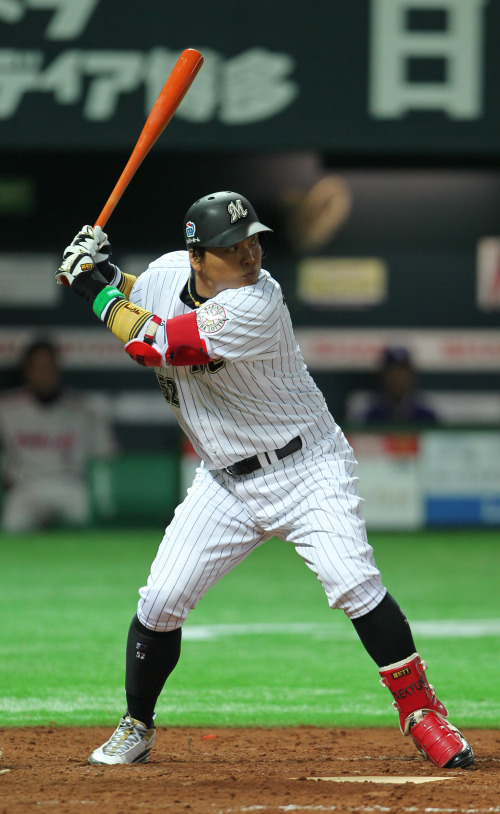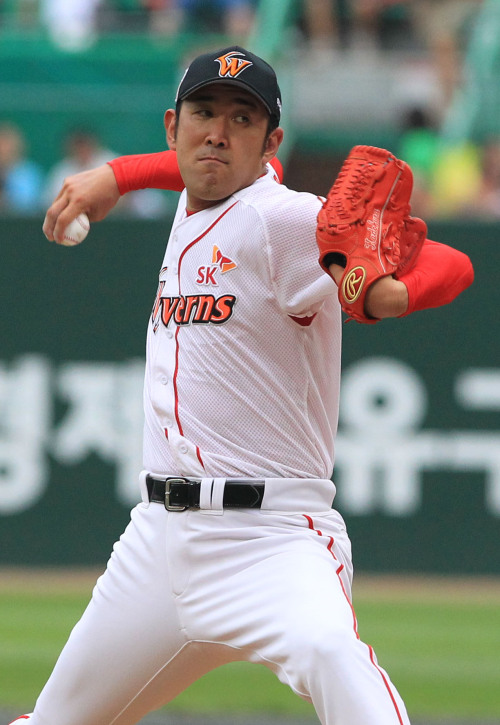[Korea-Japan 100 years on(11)] Korea closes gap with Japan in pro baseball
Published : 2010-08-25 17:03:00
It is remarkable to see how the progress of Korean baseball runs in line with the country’s economic development. It also closely resembles the change in the relationship between Korean and Japan.
While mounting resentment against Japan was prevalent in this country, the first baseball team in Korea, the YMCA team, was formed in 1905. In the same year, a Japanese-owned Hansung school in Seoul also established its own baseball team.
In 1910, Japan began its 36-year colonial rule of the Korean Peninsula with the signing of the Japan-Korea Annexation Treaty, leading to bitter memories between the two neighbors. And it was in 1910 that the first match between the two teams took place, which was unofficially recorded as the first clash between Korea and Japan in baseball history.
Having launched its professional league in 1936, Japan has long been regarded as one of the leading countries in the sport and the favorite in the region.
Korea launched its own league in 1982. With its short history and a lack of talented players, Korea struggled to make an impact at the world stage during the 1990s.
Until recently, Korean players were eager to play in Japan, where they could play baseball with advanced facilities and receive a more generous salary.
Baek In-cheon, a former Lotte Giant manager, was the first Korea-born baseball player to play in the Japanese league. Debuting with the Toei Flyers in 1963, Baek spent 18 successful seasons before retuning to Korea in 1981.
However, due to the government regulations and cultural barriers, no more Korean players were able to play in Japan until Cho Sung-min signed with the Yomiuri Giants at the end of 1995.
While mounting resentment against Japan was prevalent in this country, the first baseball team in Korea, the YMCA team, was formed in 1905. In the same year, a Japanese-owned Hansung school in Seoul also established its own baseball team.
In 1910, Japan began its 36-year colonial rule of the Korean Peninsula with the signing of the Japan-Korea Annexation Treaty, leading to bitter memories between the two neighbors. And it was in 1910 that the first match between the two teams took place, which was unofficially recorded as the first clash between Korea and Japan in baseball history.
Having launched its professional league in 1936, Japan has long been regarded as one of the leading countries in the sport and the favorite in the region.
Korea launched its own league in 1982. With its short history and a lack of talented players, Korea struggled to make an impact at the world stage during the 1990s.
Until recently, Korean players were eager to play in Japan, where they could play baseball with advanced facilities and receive a more generous salary.
Baek In-cheon, a former Lotte Giant manager, was the first Korea-born baseball player to play in the Japanese league. Debuting with the Toei Flyers in 1963, Baek spent 18 successful seasons before retuning to Korea in 1981.
However, due to the government regulations and cultural barriers, no more Korean players were able to play in Japan until Cho Sung-min signed with the Yomiuri Giants at the end of 1995.

But in 1996 Korea pledged a variety of international conventions, including cultural and sporting exchanges, with Japan. So the influx of Korean players in Japan began.
Since then, 12 players, including Sun Dong-yeol, the current Samsung Lions manager, with the Chunichi Dragons, Lee Seung-yeop of Yomiuri Giants and slugger Kim Tae-kyun who signed with the China Lotte Marines recently, have been picked for the Japanese league.

Over the past decade, South Korea has become a strong competitor in the world baseball.
The sport’s popularity has grown by leaps and bounds in Korea in the past two years particularly thanks to the national team’s successful run at the Beijing Olympics, where the country won its first gold medal in baseball, followed by its second-place finish at the 2009 World Baseball Classic.
The new trend is now that with the growing popularity of Korean baseball, an increasing number of Japanese players are willing to play in the country that once was under their rule.
In 2003, Japanese pitcher Satoshi Iriki debuted with the Doosan Bears, becoming the first Japan-born player in the Korean baseball league.
However, the then-35-year-old Iriki only managed to stay in Korea for one season. He moved to Taiwan in the following year and retired from professional baseball in 2005.
Up to 2008, three more Japanese players attempted to conquer the Korean league, but all had less than one season in Korea, failing to extend their contract with their clubs following rather unimpressive stint in the Korean baseball league.
Ken Kadokura, who signed on with the SK Wyverns in 2009, however, is different.
The former Yomiuri Giants pitcher at first did not impress with his 8-4 win-loss record in his debut year.
However, Kadokura, who has recorded 12 wins with a 3.23 ERA in 23 games played, is now a crucial pitcher for the SK Wyverns this season.
Many believe that the success of the 40-year-old veteran pitcher will encourage more Korean clubs to sign more Japanese players in next season.
“I’m enjoying playing here.” Kadokura told The Korea Herald.
The level of professionalism and the ability of Korean players are now no different than those of Japan, said the 40-year-old veteran pitcher.
He, however, points out that Korean baseball still lags behind Japan in terms of the leagues’ equipment and facilities.
“I was shocked when I found out that there was no locker room for an away team,” he said.
“Still, Korea is now like my second home. I’ve learned a lot from playing here.”
By Oh Kyu-wook (596story@heraldcorp.com)
http://www.koreaherald.com/common/newsprint.php?ud=20100822000360